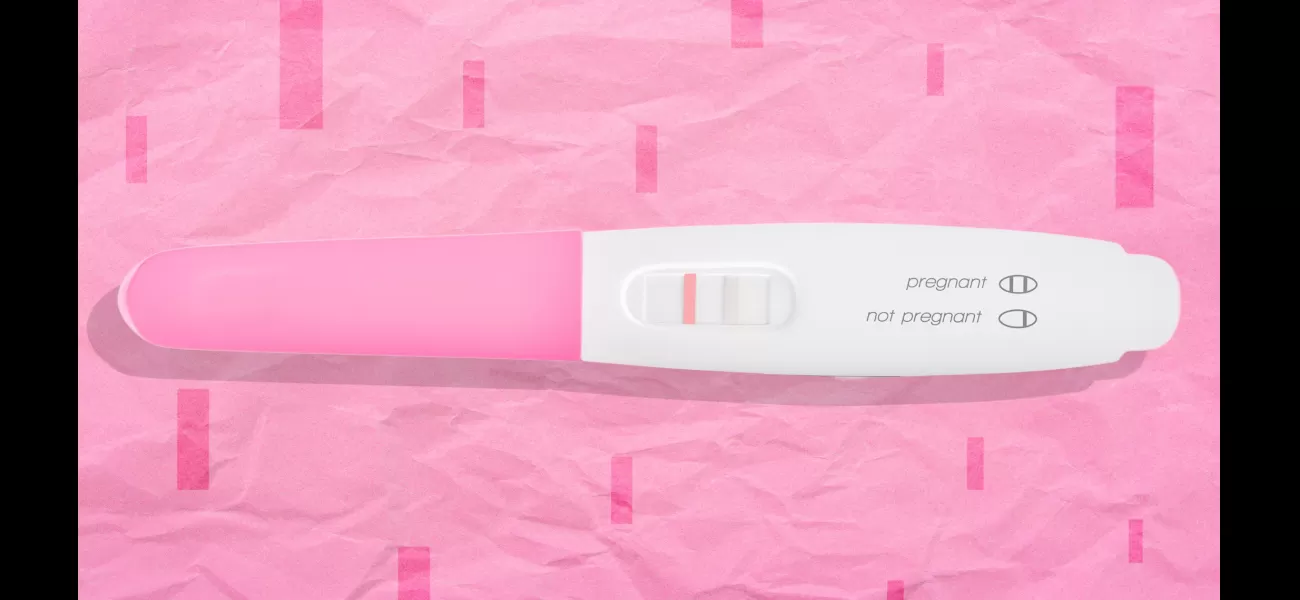Pregnancy tests can sometimes give incorrect results, leading to false positives.
The newest Emily in Paris season discusses the subject - but is it probable?
August 16th 2024.

There are many possible explanations for why you may have received a false positive pregnancy test. As you anxiously wait for the results to appear, it can be an overwhelming and nerve-wracking experience. You may be hoping for a positive result or praying for a negative one, but the thought of a false positive probably never crossed your mind. However, in the popular Netflix series Emily in Paris, Camille experiences exactly that.
In the previous season, Camille found out she was pregnant with Gabriel's baby, causing uncertainty in his and Emily's future together. But in the new episodes, Camille visits her doctor after experiencing spotting and is shocked to discover that she was never actually pregnant. The doctor explains that while it is rare, false positives can happen, especially in cases where the person is taking medication or has been under stress.
According to obstetrician Claire Mellon, this is an unlikely scenario, so there's no need to panic if you're currently worried about experiencing a false positive. It's always better to be informed, though. Claire advises not taking a pregnancy test until your period is due or late, as this can increase the chances of a false positive. She also recommends waiting a day or two and repeating the test for a more accurate result. Additionally, it's best to take the test first thing in the morning when your urine is more concentrated.
The hormone human chorionic gonadotropin (HCG) is responsible for detecting pregnancy, and it can be found in both blood and urine. Home pregnancy tests are now very sensitive and can pick up even small amounts of HCG, leading to false positives. That's why it's essential to do another test a few days later to see if the result is a stronger positive.
There are various reasons why someone may receive a false positive pregnancy test. One common cause is taking the test too soon after a miscarriage. In this case, there may still be some remaining tissue from the pregnancy, which can interfere with the test results. It's also possible to receive a false positive due to fertility treatment, as the medications used may contain HCG. In rare cases, peri-menopause can also result in a false positive, as the hormone levels may be slightly elevated.
Certain drugs can also cause false positive pregnancy tests, although this is uncommon. Fertility drugs are one example, as they may contain synthetic forms of HCG. Antidepressants and other medications can also interfere with the test results, as they may not be able to distinguish between pregnancy hormones and other substances. If you're taking any medication, it's best to wait a couple of weeks after completing the course before taking a pregnancy test.
While the storyline in Emily in Paris may make it seem like false positive pregnancy tests are common, they are, in fact, rare. So, there's no need to worry too much if you find yourself in a similar situation. If you do receive a false positive, it's always a good idea to visit your doctor for confirmation and to rule out any underlying health issues. Remember to always follow the instructions on the pregnancy test and wait for the appropriate time to take it for the most accurate results.
In the previous season, Camille found out she was pregnant with Gabriel's baby, causing uncertainty in his and Emily's future together. But in the new episodes, Camille visits her doctor after experiencing spotting and is shocked to discover that she was never actually pregnant. The doctor explains that while it is rare, false positives can happen, especially in cases where the person is taking medication or has been under stress.
According to obstetrician Claire Mellon, this is an unlikely scenario, so there's no need to panic if you're currently worried about experiencing a false positive. It's always better to be informed, though. Claire advises not taking a pregnancy test until your period is due or late, as this can increase the chances of a false positive. She also recommends waiting a day or two and repeating the test for a more accurate result. Additionally, it's best to take the test first thing in the morning when your urine is more concentrated.
The hormone human chorionic gonadotropin (HCG) is responsible for detecting pregnancy, and it can be found in both blood and urine. Home pregnancy tests are now very sensitive and can pick up even small amounts of HCG, leading to false positives. That's why it's essential to do another test a few days later to see if the result is a stronger positive.
There are various reasons why someone may receive a false positive pregnancy test. One common cause is taking the test too soon after a miscarriage. In this case, there may still be some remaining tissue from the pregnancy, which can interfere with the test results. It's also possible to receive a false positive due to fertility treatment, as the medications used may contain HCG. In rare cases, peri-menopause can also result in a false positive, as the hormone levels may be slightly elevated.
Certain drugs can also cause false positive pregnancy tests, although this is uncommon. Fertility drugs are one example, as they may contain synthetic forms of HCG. Antidepressants and other medications can also interfere with the test results, as they may not be able to distinguish between pregnancy hormones and other substances. If you're taking any medication, it's best to wait a couple of weeks after completing the course before taking a pregnancy test.
While the storyline in Emily in Paris may make it seem like false positive pregnancy tests are common, they are, in fact, rare. So, there's no need to worry too much if you find yourself in a similar situation. If you do receive a false positive, it's always a good idea to visit your doctor for confirmation and to rule out any underlying health issues. Remember to always follow the instructions on the pregnancy test and wait for the appropriate time to take it for the most accurate results.
[This article has been trending online recently and has been generated with AI. Your feed is customized.]
[Generative AI is experimental.]
0
0
Submit Comment





